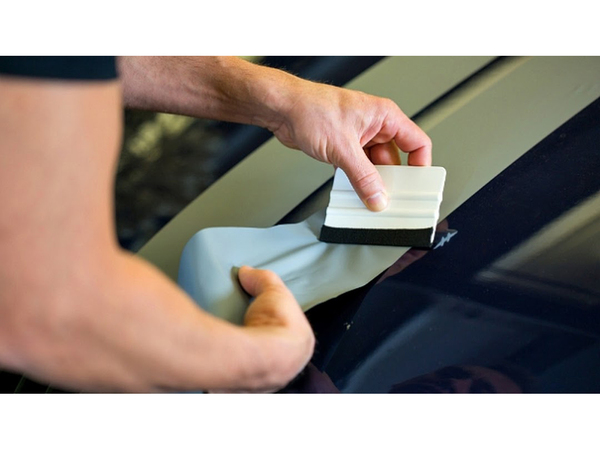Posted by - Richard Brian \
Sep 6 \
Filed in - Other
\
time required to wrap a car
\
92 views \
0 comments \
0 likes \
0 reviews
Car wrapping has become a popular trend for those looking to give their vehicle a new look without the permanent commitment of paint. Whether you want a sleek matte finish or vibrant graphics, wrapping your car can transform its appearance. But how long does it actually take to wrap a car? The process is more involved than you might think, and several factors can affect the time it takes to complete the job.
Understanding the Car Wrapping Process
Wrapping a car is an intricate task that involves applying large sheets of vinyl to the exterior of the vehicle. The vinyl can come in different colors, textures, and finishes, allowing for endless customization options. The process requires precision and skill to ensure the wrap adheres smoothly and looks professional.
Here’s a breakdown of the basic steps involved in wrapping a car:
- Preparation: Before the wrap is applied, the car needs to be thoroughly cleaned. Any dirt, dust, or debris on the surface can interfere with the wrap's ability to stick properly. This step can take several hours, especially if the car requires detailing.
- Disassembly: Certain parts of the car, like mirrors, door handles, and bumpers, might need to be removed to ensure the wrap covers the entire surface seamlessly. This can add to the overall time.
- Application: Applying the vinyl involves carefully aligning and stretching the wrap over each section of the car. The installer will use heat and squeegees to smooth out any bubbles or wrinkles. This part of the process is the most time-consuming.
- Finishing Touches: After the wrap is applied, any excess material is trimmed, and the edges are sealed. The parts that were disassembled earlier are then reinstalled.
How Long Does the Process Typically Take?
So, how long does it take to wrap a car? In most cases, wrapping a standard-sized car takes anywhere from two to three days. Here's a rough estimate of the time breakdown:
- Preparation: 3 to 5 hours
- Disassembly: 1 to 3 hours
- Application: 10 to 20 hours, depending on the size and complexity
- Finishing: 2 to 4 hours
Overall, a typical car can be wrapped in about 15 to 30 hours of labor, spread out over several days. The car might need additional time for the vinyl to fully set before it can be driven or washed.
Factors That Affect the Time to Wrap a Car
The time it takes to wrap a car can vary based on several factors:
1. Size and Type of the Vehicle
A compact car will obviously take less time to wrap than a large SUV or van. The complexity of the vehicle's shape also plays a role. Cars with many curves, creases, and body lines will require more detailed work, adding extra hours to the process.
2. Condition of the Vehicle
If the vehicle has any imperfections like scratches, dents, or chipped paint, the installer might need to fix these issues before applying the wrap. A car with a smooth, even surface is much quicker to wrap than one that requires extensive preparation.
3. Type of Wrap and Design
The complexity of the wrap design also impacts the time. A solid color wrap will take less time than a custom design with multiple colors, logos, or graphics. Detailed designs that require precision cutting and alignment will extend the overall time.
4. Experience of the Installer
An experienced installer will likely work faster than someone who is less familiar with the process. Professional wrap shops with skilled technicians can complete the job more efficiently, often reducing the time it takes.
5. Environmental Conditions
Temperature and humidity can affect how the vinyl wrap behaves during application. For example, in colder temperatures, the vinyl may be harder to work with, requiring more time to stretch and adhere properly. Similarly, high humidity can make the surface harder to clean and prepare, adding to the time.
Benefits of Wrapping a Car
Though it may take some time, wrapping a car offers several advantages over a traditional paint job. Here are a few benefits to consider:
- Cost-Effective: Wrapping is often cheaper than a custom paint job, especially for complex designs.
- Temporary: A car wrap is not permanent. If you change your mind or want to update the look, you can easily remove the wrap without damaging the original paint.
- Protection: The vinyl wrap acts as a protective layer, shielding the car's paint from UV rays, dirt, and minor scratches.
- Customization: Car wraps offer more flexibility and customization options than paint, allowing for unique finishes like chrome, carbon fiber, or camouflage.
Conclusion
Wrapping a car is a fantastic way to enhance its appearance and protect the paint underneath. While the time it takes to wrap a car can vary based on several factors, the average process typically spans a few days. From preparation to the final touches, every step requires precision and care to achieve a flawless result. If you're considering a car wrap, it's essential to plan for the time commitment and choose an experienced installer to ensure a quality finish that will last for years to come.




Comments